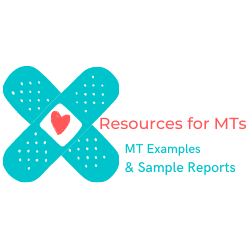REASON FOR CONSULTATION: Bloody diarrhea for about 10 days.
HISTORY OF PRESENT ILLNESS: The patient is a (XX)-year-old female who presented to the emergency room with 10 days of bloody diarrhea. She had been given Augmentin 875 mg for a total of 10-day course for presumed infection of her foot and pain about 2-1/2 weeks ago.
She had no problems with GI symptoms until 7 days later, when she began to have bloody diarrhea, not having severe abdominal cramping prior to the passage of small volume or frankly bloody stools about 8-10 times per day.
She denies fever, but she has chills and nausea. No vomiting but decreased appetite, minimal weight loss, diffuse abdominal tenderness throughout the day with left residual weakness and dry mouth which has gotten better as the days go on with IV dehydration.
No neck pain, rash, anal lesion or heartburn. She does complain of rectal soreness. The patient had recent C. diff that was negative.
PAST MEDICAL HISTORY: Ulcerative proctosigmoiditis. She had a flare in January after being given Avelox. The patient had a colonoscopy at that time that showed evidence for pseudomembrane. Type 2 diabetes, hypertension and increased cholesterol.
Her first episode of ulcerative proctitis was 11 years ago. Colonoscopy was performed. Most recent colonoscopy was done by myself 9 months ago that showed colitis in the anal verge at 20 cm with loss of vascularity, increased erythema, exudate and friability. For 20 to 30 cm, the mucosa was normal, for 30 cm into the right colon there was evidence of colitis and multiple pseudomembranes. The plan was to perform a colonoscopy when she was not having a flare, so as to document the extent of her ulcerative colitis to determine the frequency of colonic evaluations in the future.
She canceled that because she had just started a new job 3 weeks prior.
PAST SURGICAL HISTORY: Cholecystectomy and carpal tunnel surgery.
SOCIAL HISTORY: Cigarette smoking. Alcohol: None.
FAMILY HISTORY: Cousin has Crohn’s disease.
MEDICATIONS: Prior to coming to the hospital; Crestor, lisinopril and Glucophage.
ALLERGIES: NONSTEROIDAL, CODEINE, QUINOLONES.
MEDICATIONS: Phenergan.
PHYSICAL EXAMINATION:
VITAL SIGNS: Temperature 97.2, pulse 104, respiratory rate 20, blood pressure 128/84.
LUNGS: Clear.
HEART: Unremarkable.
ABDOMEN: Soft. There is diffuse periumbilical tenderness, more on the left lower quadrant than the right lower quadrant. Positive bowel sounds. Nondistended.
LABORATORY AND X-RAY DATA: White count 7.8, hemoglobin 13.6, hematocrit 39.8, MCV of 83.8, platelet count 306,000, calcium 8.9. PT 13.4 with an INR 1.18. Serum sodium 138, potassium 3.7, chloride 102, CO2 of 27.8, BUN 4, creatinine 0.7, glucose 190. Urinalysis is pending. Stool studies, culture and stain are pending.
DIAGNOSIS: The patient is a (XX)-year-old female with history of ulcerative proctosigmoiditis who presents with bloody diarrhea.
DIFFERENTIAL DIAGNOSES:
1. Recurrence pseudomembranous colitis.
2. There is an entity called ampicillin/ampicillin derivative colitis that can present with hemorrhagic colitis. It is more typically in the right colon than left colon, and it gets better with the resolution of taking antibiotic. This also has been reported with cephalosporin.
3. Infectious colitis.
4. Less likely that of flare of ulcerative proctosigmoiditis.
PLAN:
1. The plan is to repeat C. diff.
2. IV fluids.
3. The patient is scheduled for CT of the abdomen and pelvis.
4. If the C. diff is positive, we do not think any further GI evaluation is required except to treat her positive C. diff. If her C. diff is negative, then we would recommend sigmoidoscopy with just tap water enema prior to this. This was discussed in detail with the patient.
Thank you very much for allowing us to participate in this interesting consultation.
